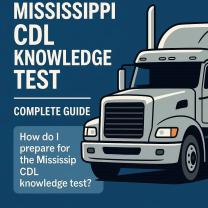What classes are needed for an economics degree?
The specific classes required for an economics degree can vary depending on the university and the degree level (bachelor's, master's, or Ph.D.). However, I can provide a general overview of the typical classes you might find in an undergraduate economics program. Keep in mind that this is a general guideline, and the actual requirements may differ based on the institution.
Core Economics Courses:
Principles of Microeconomics:
- Introduction to the fundamental concepts of microeconomics, including supply and demand, consumer and producer behavior, and market structures.
Principles of Macroeconomics:
- Introduction to the basic principles of macroeconomics, covering topics such as GDP, inflation, unemployment, and fiscal and monetary policy.
Intermediate Microeconomics:
- In-depth analysis of microeconomic principles, including consumer choice, production theory, market structures, and game theory.
Intermediate Macroeconomics:
- In-depth analysis of macroeconomic principles, focusing on economic growth, business cycles, monetary policy, and international economics.
Econometrics:
- Introduction to statistical methods and models used in economic research and analysis.
Mathematics for Economists:
- A foundational course covering mathematical concepts and techniques relevant to economic analysis, including calculus and linear algebra.
Elective Economics Courses:
Labor Economics:
- Study of the labor market, wage determination, and issues related to employment and unemployment.
International Economics:
- Examination of international trade, finance, and economic relations between countries.
Public Finance:
- Exploration of government expenditures, taxation, and fiscal policy.
Money and Banking:
- Analysis of the financial system, central banking, and monetary policy.
Development Economics:
- Study of economic development, poverty, and issues related to global economic disparities.
Environmental Economics:
- Exploration of economic approaches to environmental issues, including sustainability and natural resource management.
Game Theory:
- Introduction to the study of strategic interactions and decision-making in situations involving multiple players.
Capstone or Senior Thesis:
- Capstone Course or Senior Thesis:
- Many economics programs include a capstone course or require students to complete a senior thesis, allowing them to apply their knowledge to a specific research project.
Additional Requirements:
Statistics:
- A statistics course may be required to provide a solid foundation in statistical methods used in economic analysis.
Writing Intensive Courses:
- Some programs may require writing-intensive courses to develop strong communication skills.
General Education Requirements:
- Depending on the university, students may need to fulfill general education requirements in areas such as humanities, social sciences, and natural sciences.
It's crucial to review the specific degree requirements outlined by the institution offering the economics program. Additionally, students may have the opportunity to choose elective courses based on their specific areas of interest within economics. For graduate-level economics degrees, the coursework becomes more specialized, and students often focus on research and advanced topics within their chosen field.
Which specific courses form part of an economics degree program?
The specific courses you'll encounter in an economics degree program can vary depending on the university, program emphasis, and year of study. However, here's a general overview of common courses you might find:
Introductory Level:
- Principles of Microeconomics: Introduces fundamental concepts like scarcity, choice, supply and demand, market structures, and price theory.
- Principles of Macroeconomics: Explores national income and output, inflation, unemployment, economic growth, and fiscal and monetary policy.
- Mathematics for Economics: Introduces basic mathematical tools used in economic analysis, like calculus, statistics, and optimization.
- Econometrics: Provides an introduction to using statistical methods to analyze economic data and test economic theories.
Intermediate Level:
- Intermediate Microeconomics: Delves deeper into market theory, firm behavior, consumer choice, game theory, and market failures.
- Intermediate Macroeconomics: Analyzes economic models of aggregate demand and supply, business cycles, monetary and fiscal policy, and economic growth.
- Econometrics II: Builds on introductory econometrics to cover more advanced topics like time-series analysis, panel data analysis, and causal inference.
Advanced Level:
- Development Economics: Analyzes economic issues in developing countries, including poverty, inequality, economic growth, and international trade.
- Behavioral Economics: Investigates how psychological and cognitive factors influence economic decision-making.
- Public Finance: Examines the role of government in the economy, including taxation, public spending, and welfare programs.
- Game Theory: Analyzes strategic interactions between individuals and firms in various economic contexts.
- Econometrics III: Covers advanced topics like instrumental variables, generalized method of moments, and limited dependent variables.
Electives:
- Many programs offer a wide range of electives allowing you to specialize in specific areas of interest, such as:
- Environmental economics
- Financial economics
- Labor economics
- International economics
- Health economics
- Urban economics
- History of economic thought
Remember, this is a general overview, and the specific courses offered may vary. Always consult the program details of your chosen university for a more accurate picture of the curriculum.
If you have any specific interests or questions about certain courses, feel free to ask!












